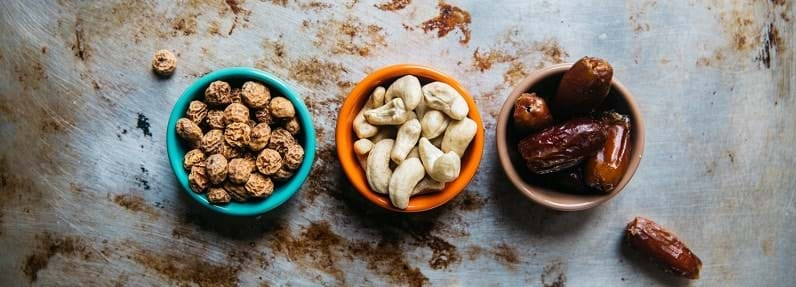10 Tips For Healthy Snacking
November, 2017
Personal Training and Nutrition Go Hand in Hand
Your stomach is growling but lunch is still a few hours away. You start fantasising about a snack – a muffin, chocolate, another coffee perhaps? But then you snap back to reality and tell yourself to put up with the hunger pangs until lunch. After all, you don’t want to sabotage your weight loss goals.
That’s where you might be mistaken. Research [1] shows that snacking between your main meals can help manage hunger, reduce bingeing at mealtime and help you have more stable blood glucose levels over the course of the day. Combined, these benefits may actually assist with weight loss.
But not all snacks are equal. The key is to snack on nutrient-dense, low calorie foods that satisfy your hunger, and not to increase your overall daily intake of calories. In other words, you’re spreading your calorie intake out over the course of the day to keep hunger levels on an even keel and avoid overeating at mealtime.
Tips for healthy snacking
- Eat regular meals. Going hungry makes you more likely to pig out on extra snacks. The number of snacks you eat will vary based on your activity level and how big your meals are. If you're very active, you may prefer 2–3 snacks per day, while a more sedentary person may do best with one snack or no snacks.
- Plan your snacks. Write a shopping list and avoid grocery visits when you’re hungry. Those snack food displays at the checkout counter can be hard to resist.
- Carry healthy snacks with you. Prepare snacks in advance and go for maximum variety to avoid boredom. In general, it's best to eat snacks that contain about 200 calories and at least 10 grams of protein to help you stay full until your next meal.
- Stock healthy snacks in your fridge and pantry. Suggestions include: boiled eggs, yoghurt, nuts, vegetables, vegetable dips, wholemeal or rice crispbreads and fresh fruit. Keep them at the front of the fridge or the pantry so you’re more likely to reach for them first.
- Resist buying junk food. Potato chips, sweet biscuits and chocolate are high in salt, fat and calories. Make them occasional treats, not everyday foods.
- Make your own. Enjoy preparing and eating your own snacks using fresh ingredients. Have fun experimenting with new recipes and replace your favourite snack foods with healthy homemade alternatives.
- Keep a stocked fruit bowl and put it in plain sight. You’re more likely to snack on healthy options if they’re on hand.
- Limit your consumption of ‘health bars’ and fruit juices. Don’t be fooled by the advertising. Processed muesli, breakfast or energy bars and juices are typically high in salt, fat or sugar.
- Think portion control. If you really want some of your favourite junk food, read the label and stick to one serve. Don’t eat the whole packet!
- Don’t skip breakfast. People who avoid breakfast tend to nibble on snacks during the mid-morning, which can be a problem if those snacks are junk foods. Skipping breakfast has also been associated with weight gain.
Get a snack education
Part of maintaining a healthy diet, especially if weight loss is your goal, is educating yourself about what’s in your food and planning ahead…and that includes snacks. You’d be surprised how many foods and drinks you think are healthy but are much higher in calories, fat, sugar or salt than you realise and may be sabotaging your weight loss goals.
Keeping a food diary, at least for the first month of your new dietary changes, is a great way to help you plan, keep you accountable and encourage you to learn about the nutritional content in your food. It sounds tedious, but it truly is an eye-opener if you’re serious about getting results.
Healthy snack swapping is a behaviour that can become a long-term habit. That’s the type of behaviour change we encourage at Urban Fitness Solutions.
For more advice about nutrition and creating sustainable, healthy habits, contact Sydney’s leading group fitness, health coaches, Urban Fitness Solutions.
Contact Us Download Our E-book
[1] McCrory, M. and Campbell, W. (2010). Effects of Eating Frequency, Snacking, and Breakfast Skipping on Energy Regulation: Symposium Overview. Journal of Nutrition, 141(1), pp.144-147.


